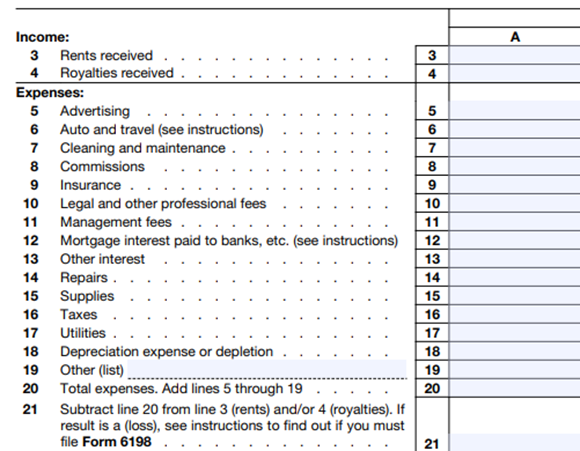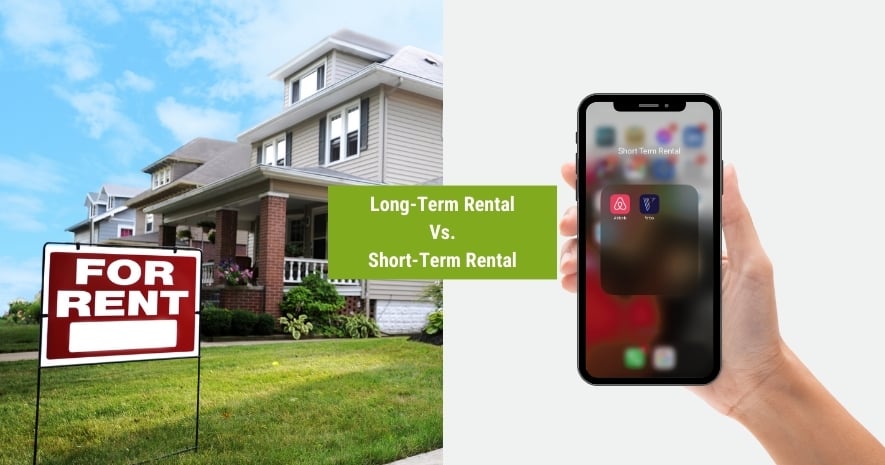Written by Randall Weaver, CPA & Adam Siviter
In the ever-evolving realm of real estate, opting for either short-term or long-term rentals transcends mere convenience; it represents a choice with substantial implications for your financial strategy. At Trout CPA, we acknowledge the intricate nature of this decision and strive to offer a holistic viewpoint that encompasses the frequently underestimated dimension of taxation. This article delves into the financial and tax ramifications of both short-term and long-term rentals, providing you with an enlightened perspective to aid in determining which strategy aligns best with your needs.
Short-Term Rentals
Short-term rentals, facilitated through platforms like Airbnb or VRBO, offer the potential for higher rental income. However, the allure of increased profits comes hand in hand with tax complexities.
Income Volatility and Tax Implications
The inconsistency of earnings linked to short-term rentals and their typically brief customer stays can result in fluctuating tax obligations. It is crucial to consider potential tax liabilities, particularly when short-term rentals fail to meet the criteria for classification as rental properties and instead qualify as trade or business activities.
For instance, if a property designated for short-term rental maintains an average stay duration of 7 days or less, the property is not considered a rental activity. Additionally, if a property is rented for more than 7 days but less than 30 days and the accommodation offers significant personal services, the activity is not considered a rental. Planning and discussing your situation with your tax professional is vital to the success of your financial performance and tax compliance.
There is increasing regulatory adherence for Pennsylvania rentals that landlords should exercise caution about. If you lease a property for less than 30 days in Pennsylvania, you are liable to pay sales and hotel occupancy tax, both at the state level and to local authorities as well. Regions like Philadelphia, Easton, Mount Pocono, and Gettysburg experience higher tax rates imposed by their respective counties. It is imperative to grasp the tax ramifications associated with short-term rental income to prevent unforeseen complications during tax season.
Deductibility of Expenses & Losses
While short-term rentals might yield higher revenue, they also entail increased operational expenses. Grasping the repercussions of escalated costs is essential for optimizing your tax position. Expenditures like cleaning fees, property management fees, commissions, and maintenance costs are typically unique to short-term rentals and can swiftly become substantial if not strategically managed.
It is possible that your short-term rental may incur a loss, and in such cases, comprehending the criteria to capitalize on those losses is crucial. The ability to deduct losses from a short-term rental property categorized as a trade or business hinges on whether the owner actively participates in the activity. If the rental property is considered a passive activity, then the losses are subject to the Passive Activity Loss (PAL) rules. Furthermore, unlike long-term rentals, short-term rental properties that do not qualify as rental activities cannot benefit from the real estate professional designation. This designation facilitates the grouping of all rentals into a single activity, which enables the offsetting of rental losses against non-passive income and the avoidance of net investment income tax.
Depreciation and Asset Management
Effectively handling the depreciation of your property gains heightened importance in the context of short-term rentals. The tax ramifications associated with depreciation require careful consideration, given their potential to profoundly influence your overall financial strategy. Employing tactics like cost segregation studies can notably reduce your taxable income in the year the study is conducted. Nonetheless, it is essential to note that short-term rental properties that are rented for 7 days or less are technically classified as commercial real estate and, therefore, undergo depreciation over a life of 39 years, in contrast to residential real estate, which follows a 27.5-year depreciation schedule, reducing the annual depreciation deduction you can claim.
Commercial real estate, on the other hand, possesses its unique subtleties. Commercial properties have a provision called Qualified Improvement Property (QIP), which are internal, nonstructural improvements to commercial buildings that occur after the originally placed-in-service date. QIP has a 15-year tax classification. Leveraging QIP is an excellent strategy to accelerate depreciation. QIP qualifies for bonus depreciation, enabling a deduction of 80% of the total cost in the year it is placed into service in 2023. While bonus depreciation is being phased out, this strategy can still be used in 2024 and 2025, but the deduction is reduced to 60% and 40%, respectively. The only prerequisites are that the improvements must not impact the building's structure and must be put into service after the original in-service date of the building.
Long-Term Rentals
Long-term rentals offer a more stable income stream and come with their own set of tax considerations.
Stable Income and Tax Planning
The reliability of consistent monthly income derived from long-term rentals serves as a robust and dependable foundation for effective tax planning. With the predictability inherent in long-term rental income, you gain a stable financial platform that empowers you to understand and plan for your regular tax obligations comprehensively. This stability facilitates smoother financial management and allows for a strategic alignment of resources toward achieving broader financial goals. By having a steady income stream from long-term rentals, you can strategically navigate tax responsibilities, enabling a more proactive and informed approach to meet your overarching financial objectives.
Depreciation and Tax Benefits
Depreciation stands as a pivotal element within the financial dynamics of long-term rental properties, exerting influence on both the property's long-term value and the owner's tax obligations. Comparable to short-term rentals, long-term rental properties can leverage cost segregation studies to optimize short-term deductions. Nevertheless, in contrast to short-term rentals, the depreciable life for long-term rentals spans 27.5 years, enhancing the yearly deduction. It is important to acknowledge that while depreciation yields continuous tax advantages, there exists the prospect of depreciation recapture upon property sale of both long-term and short-term rentals. In this scenario, a portion of the depreciation previously claimed may incur taxation at a heightened rate if the property is sold at a gain.
Tax Treatment of Tenant Payments
Income received from long-term rentals is generally taxed at your ordinary income tax rate. Understanding the tax treatment of rental income is vital for accurate financial forecasting and compliance. Maintaining thorough records of income and expenses related to the long-term rental property is essential. Proper documentation supporting accurate tax reporting is extremely valuable in the event of an audit. Below is a snippet of Schedule E, which includes items for which you should keep accurate records.

Considerations for Your Investment Strategy
Tax Efficiency
You should evaluate the tax efficiency of each rental strategy based on your financial goals. Consider consulting with tax professionals to develop a strategy that optimizes your tax position while aligning with your investment objectives.
Recordkeeping and Compliance
Both short-term and long-term rentals require precise recordkeeping for tax purposes as well as ensuring compliance with local tax regulations to avoid penalties and legal issues. As of September 5, 2023, New York has implemented stringent rules, including heightened restrictions on short-term rentals with penalties for non-compliance. Local Law 18, also known as the Short-Term Rental Registration Law, mandates short-term rental properties to meet specific requirements to host visitors. It is essential to recognize that similar restrictions may be implemented in other regions of the country in the foreseeable future.
Professional Guidance
Collaborating with tax professionals who possess specialized knowledge in real estate taxation is a strategic step to successfully navigate the intricate landscape of short-term and long-term rental taxation. These professionals bring a wealth of expertise to the table, offering tailored insights and guidance that can significantly impact your financial strategy.
Conclusion
The decision between short-term and long-term rentals involves careful consideration of both financial and tax implications. At Trout CPA, we specialize in providing financial and tax solutions for real estate investors. Whether you are exploring short-term or long-term rentals, our team is dedicated to offering the insights and guidance needed to make informed decisions and maximize your investment returns.
About the Authors
Randall Weaver, CPA
Randall joined Trout CPA in 2011. He graduated from Millersville University with a Bachelor of Science degree in Business Administration (magna cum laude) in 2006. Randall has 15 years of accounting experience. He currently serves on the firm's Construction and Real Estate, Manufacturing, and Estate & Trust Practice Groups. As a Partner, Randall manages all aspects of tax planning and preparation and business consulting for some of the firm's significant clients. Randall enjoys activities with his family, being involved with his church, and rooting for Philadelphia sports teams. He lives in Lancaster County with his wife and two children.
Adam Siviter
Adam joined Trout CPA in January 2022 after graduating summa cum laude with a Bachelor of Science degree in accounting and a minor in business management from Mount St. Mary’s University. As an Associate, Adam assists with corporate and individual tax preparation. He also helps with audit and attest services, including financial statement preparation. In his spare time, Adam enjoys playing golf with friends and hiking. In addition, Adam is a UEFA B licensed soccer coach and has a passion for coaching young children.






